“Let food be thy medicine and medicine be thy food.”
—Hippocrates, Ancient Greek physician known as the Father of Medicine
Many of us put medicine into our bodies to make us feel better. Yet we often don’t make the connection that the food we put into our bodies can make us feel better too.
Research supports the idea that what we eat plays a major role in our health. Health practitioners and scientists agree that food not only nourishes the body, it also helps protect us from many lifestyle diseases and symptoms of poor health. Eating well can help lower your risk of many chronic health problems, such as heart disease, high blood pressure, stroke, diabetes, reflux, obesity, and some cancers.
At Nature’s Link, we know that food is one of the first things you need to think about if you want to make a change to your health. Here, we give you some basics for getting started with eating in the best way possible.

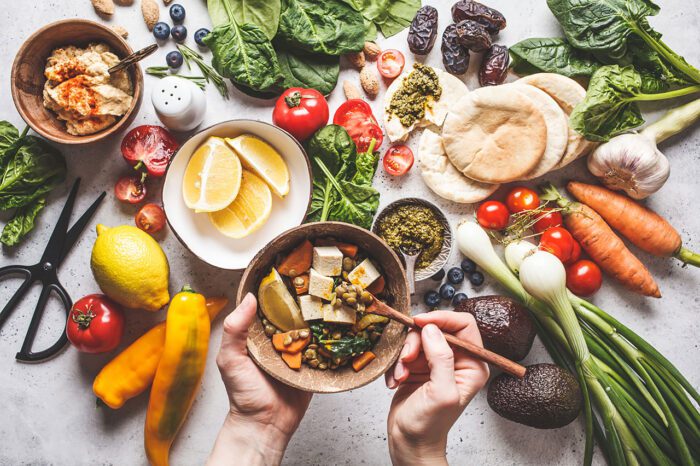
Eat More Plants
One of the easiest and fastest ways to improve your health is to eat a plant-based diet. Plants include vegetables, fruits, legumes (beans and pulses), whole grains, nuts, and seeds.
Why is a plant-based diet good for you?
Immune health. A plant-based diet provides essential nutrients that you can’t get from animal products or processed foods, including vitamins, minerals, phytochemicals, and antioxidants. These nutrients keep your cells healthy and your body in balance so that your immune system can thrive.
Inflammation. The essential nutrients from plants also help resolve inflammation in your body by neutralizing toxins from pollution, processed food, bacteria, viruses, and more. Prolonged inflammation can hurt your body’s cells and tissue and has been linked to cancer and other inflammatory diseases like arthritis. A plant-based diet helps remove some of the triggers to these diseases.
Fiber. A plant-based diet is high in fiber, a super nutrient that is essential to good health. Fiber is the part of plant foods (the carbohydrates) that your body can’t digest. It provides a huge range of health advantages—from lowering cholesterol to feeding the good bacteria in your gut to reducing your risk of chronic disease such as diabetes. Here’s more on why fiber is so important.
Weight management. Eating a whole food, plant-based diet can help you cut back on many of the foods that contribute to weight gain. Excess weight contributes to inflammation and hormonal imbalance. Maintaining a healthy weight helps reduce your risk of cancer, high blood pressure, heart disease, stroke, and diabetes.
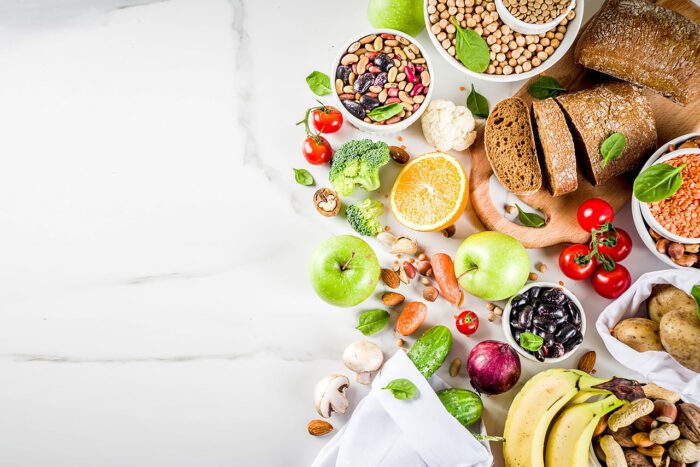
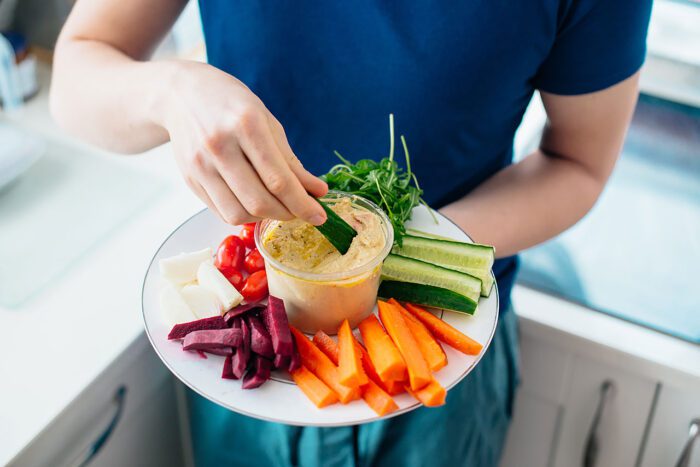
Local, Seasonal, Organic
Local. Seasonal. Organic. We see these words a lot when we’re thinking about eating well. And while it isn’t always possible to eat this way all the time, it’s a good idea to know why each is important and try to incorporate this way of eating into your life as much as possible.
Local. Eating food that is grown close to where you live will reduce the number of days between your food being harvested and being on your plate. The faster food gets to you, the better it is for you because the nutrients in vegetables and fruits lose their potency the more time they spend in storage and transit. Also, food that travels long distances is usually harvested before its ripe. Food that ripens after it’s been harvested doesn’t have the same nutritional density of food that is picked when it’s ready to be eaten.
Seasonal. Food produced outside of its normal growing season is often being artificially ripened. This process involves ripening agents, including gases, chemicals, and heat processes that cause the food to lose some of its nutritional content and make it less tasty than seasonal food. Eating locally grown food will make it easier for you to eat seasonally too. Find your local CSA (community-supported agriculture) program to help.
Organic. Organically grown vegetables and fruits have less residue from pesticides and fertilizers than non-organic food, but the debate about its nutritional content is ongoing. For more information, check out the Environmental Working Group’s Dirty Dozen, an annual list of the United States Department of Agriculture’s findings of conventionally grown foods that most likely contain pesticide residues.
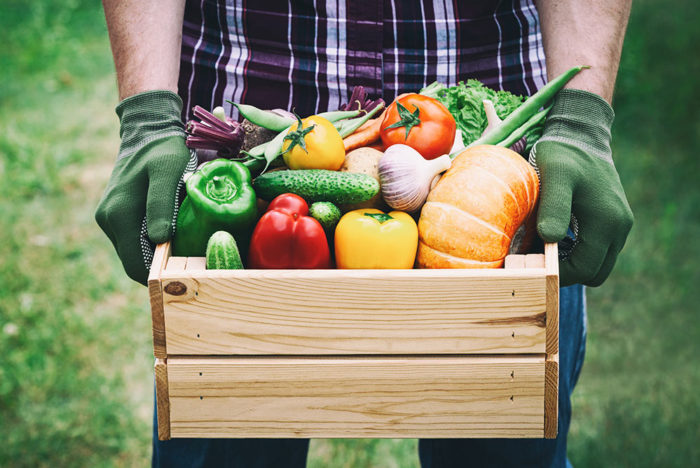
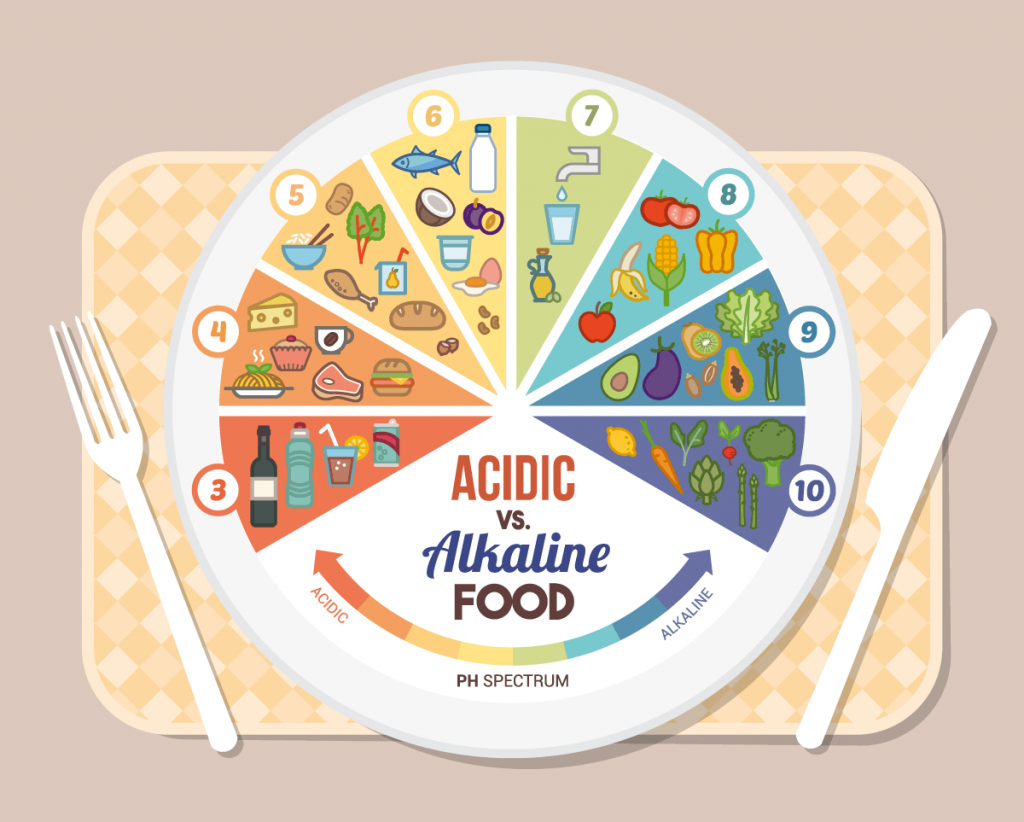
Alkaline vs. Acidic Foods
The food you eat influences the pH value — the measurement of acidity or alkalinity — of your body. A diet high in acid producing foods such as meat, dairy, and processed foods may increase the acidity in the body and negatively affect your pH levels. This can contribute to a decrease in the body’s ability to absorb nutrients, repair damaged cells, and produce energy in the cells. It may also make the body more prone to illness and disease.
Our bodies are constantly striving to balance our pH. A highly processed or acidic diet requires the body to use its existing supply of alkaline minerals such as potassium, magnesium, sodium, and calcium to help regulate its pH. A whole food, plant-based diet is a good help in balancing your body’s pH. For more on the pH spectrum of food, visit our webpage.
Food is Figureoutable
Food Is Figureoutable: An Essential Guide to Body Systems is a handy guide to food and your health from Natural Health Practitioner and Board-certified Naturopathic Doctor Kristine Devillier. It’s an easy-to-understand look at each of the body’s main systems, providing recommendations for foods that will help protect these systems and ease symptoms of poor health and disease related to them.


Get In Touch With Nature’s Link
Dr. Kristine Devillier has more than 20 years’ experience in natural health, including physical, mental, emotional, and spiritual health. She’s dedicated her entire professional life to helping others (and herself) find better health by integrating all these aspects into their lives. Dr. Devillier creates holistic health plans that are specific to your needs and guides you on your journey to better overall health.
If you’re ready to learn more about the incredible effect food can have on your health, give us a call on 337-332-2705 or reach us online. Nature’s Link Wellness Center is proud to provide holistic health and alternative medicine to Breaux Bridge, Lafayette, and the entire Acadiana community.

